This story continues where the other left off, in the valley of Zanskar where I test my endurance perhaps more than I ever had before up to that point. It was truly a deadly experience and I was very glad to have survived it. It's an incredible confidence booster to come out on top of a moment like that. What follows is the first day in Padum, the administrative centre of Zanskar.
--
July 28, 2014
In the morning Philip and I take taxi to Padum. We pass villages that are situated on the shoulder of a mountain, separated from us by the steep depression leading down to the river. I see the hallowed Muney Gompa atop a large, barren hill. We skirt by so quickly that I don’t have time to take a photo.


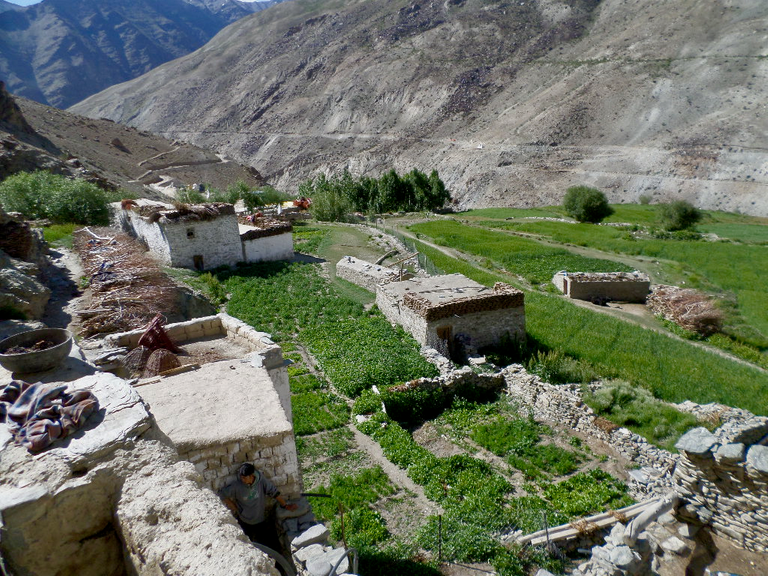
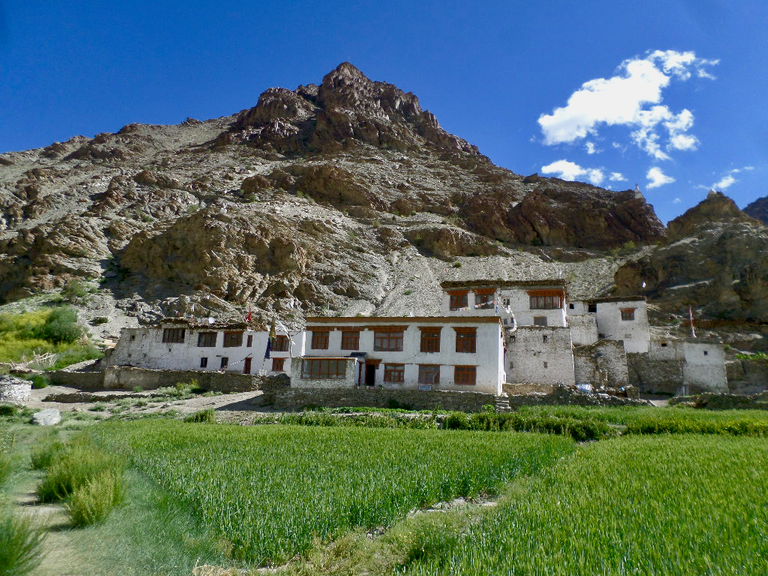


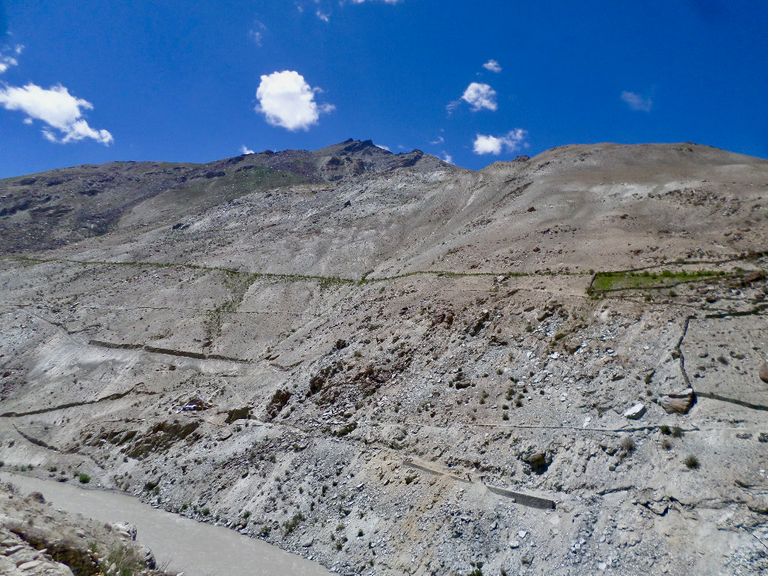

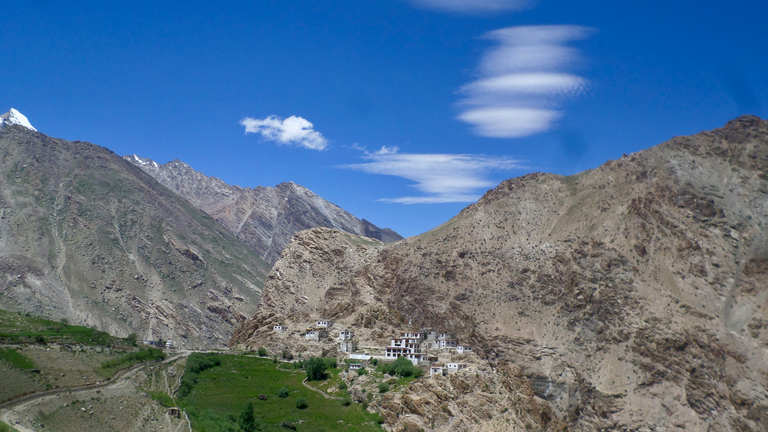
Padum is the political centre of this district and easily the largest village. Compared to where we’ve been so far, Padum feels like a busy place. It doesn’t take many vehicles to stir an Indian town into a whirlwind of smoke, dust, and noise pollution. After five days of trekking and isolation, it's a shock to return to this much civilization.
While Philip searches for a place for us to stay, I find a restaurant for some coffee and a thali. Philip meets me later, we decide to stay at the Ibex Homestay. Trekkers generally stay there, according to our sources, so it’s a good meeting place and guaranteed to have showers.
I sit with my coffee and observe Padum. This is the first time I’ve seen Middle Eastern people this close to Kashmir. The women here are extremely gorgeous. Prayer wheels divide the dusty streets. Monks hang out by the dhabas. I notice an unexpected thing — some of them have smartphones.
Philip meets a Frenchman who is also trekking in this part of the Himalayas. He’s a thin man in his early 30s, he goes by the name of Julian. He’s been in India a couple of times and has been trekking in the Himalayas for three months prior to meeting us, and he plans to keep going for a month longer. Philip and I know we can get some solid advice from Julian, and this fellow would turn out to be one of my favorite trekking partners.
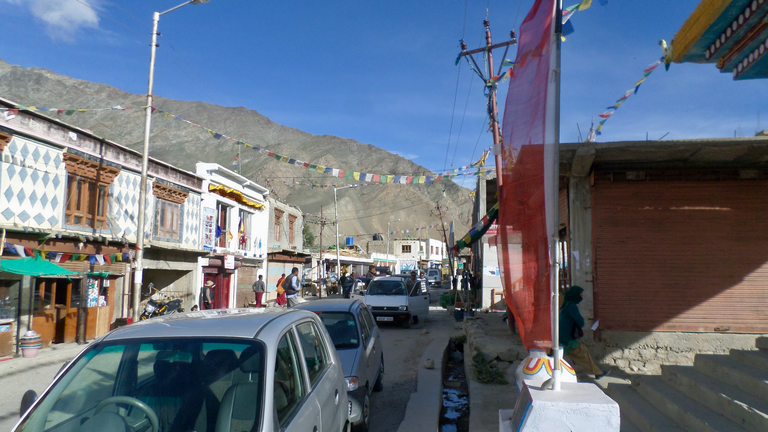
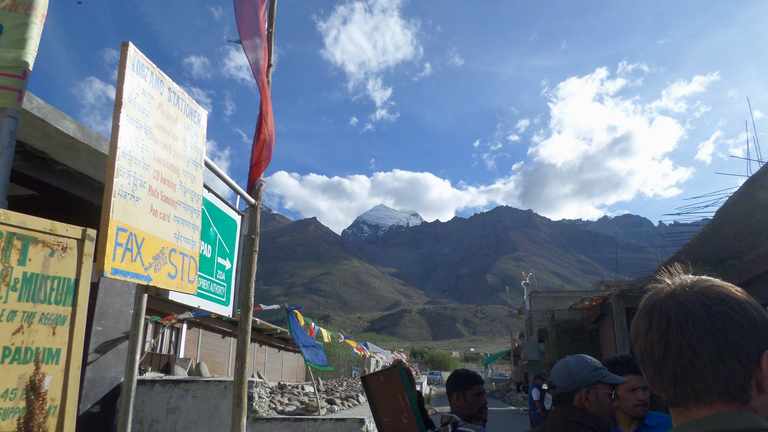
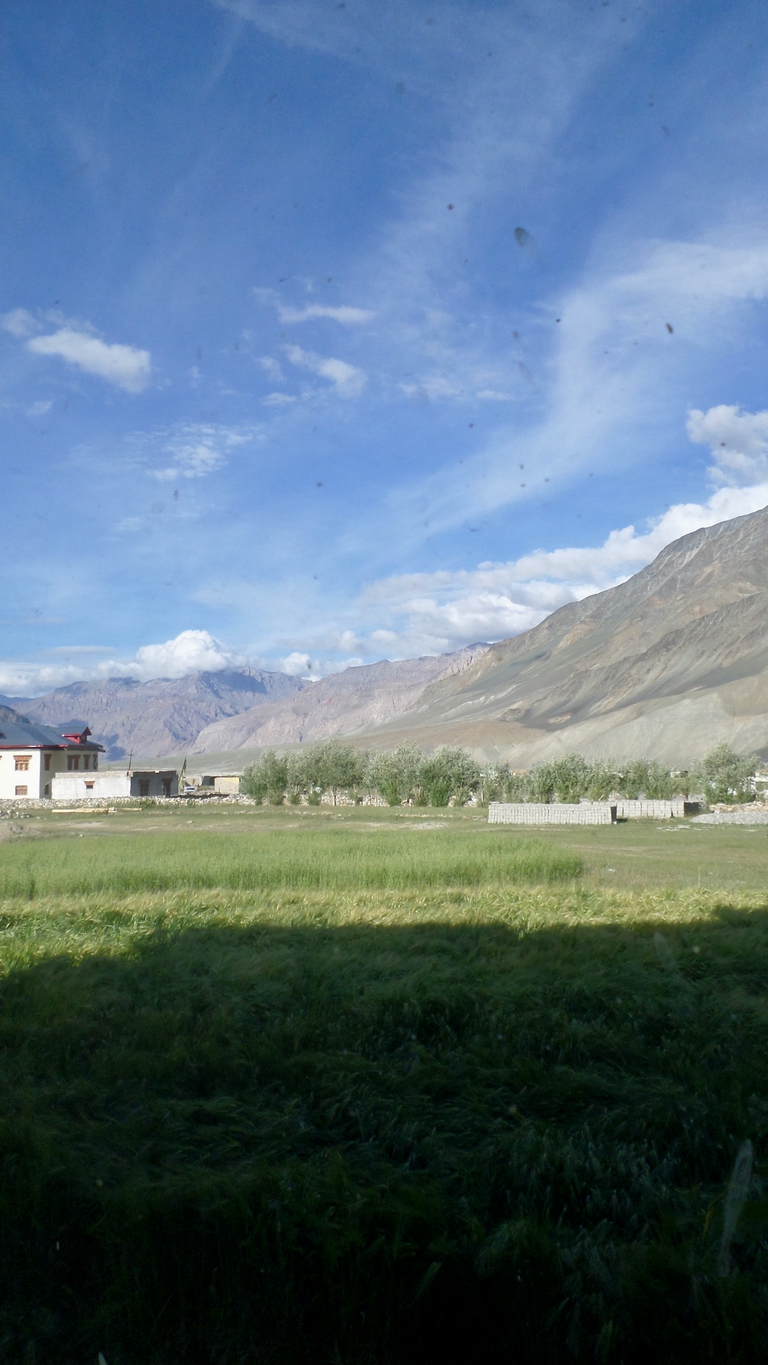

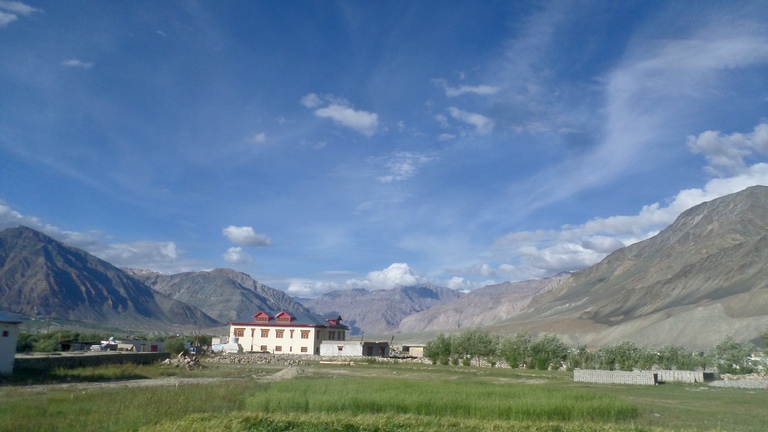



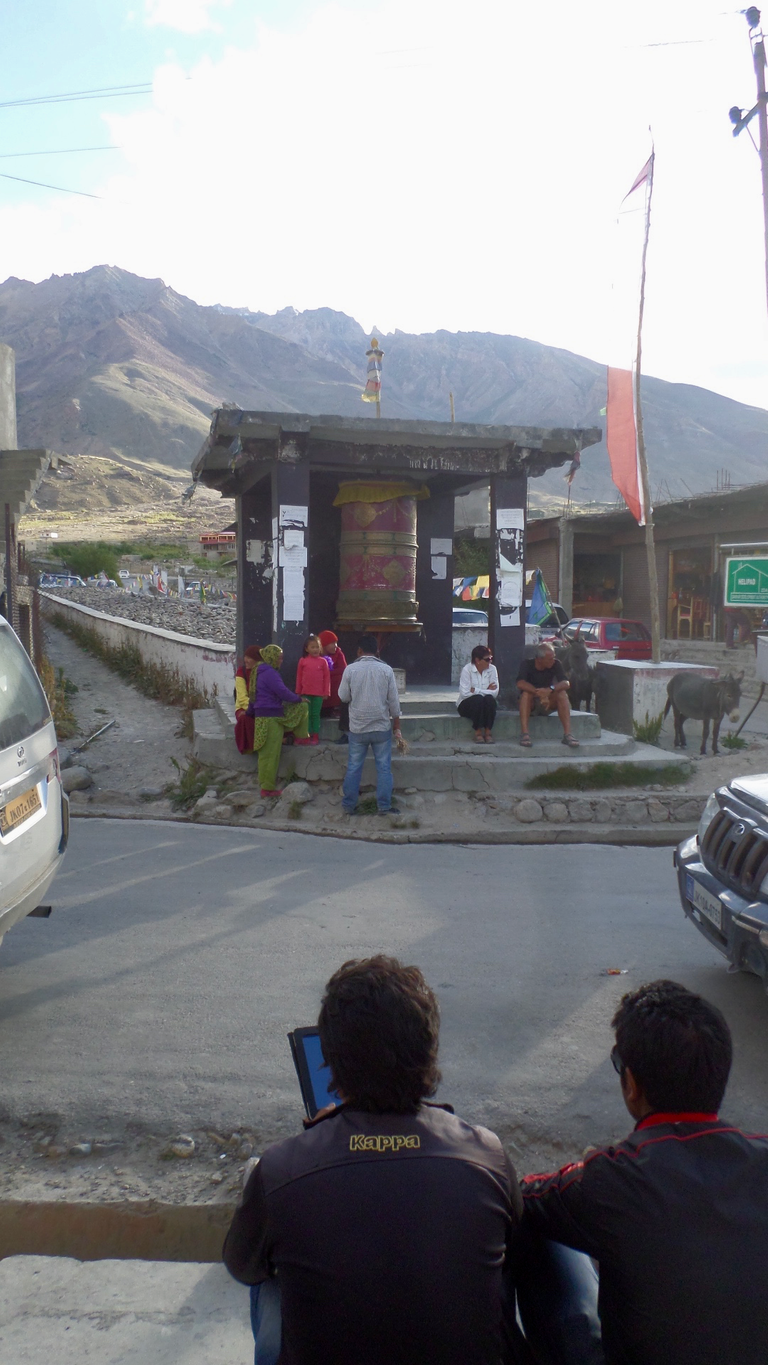
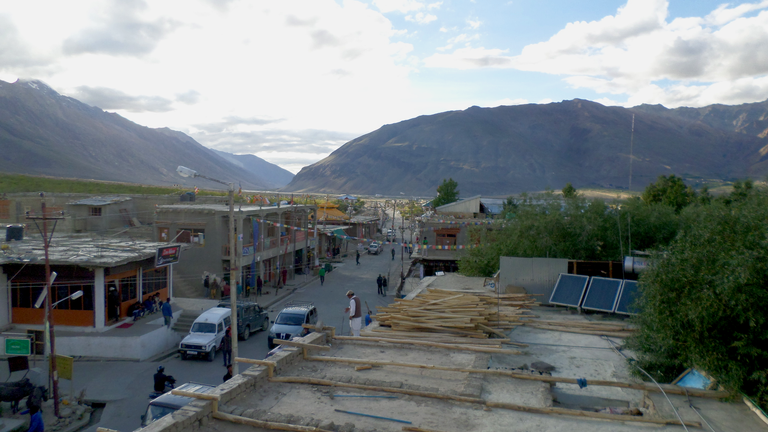


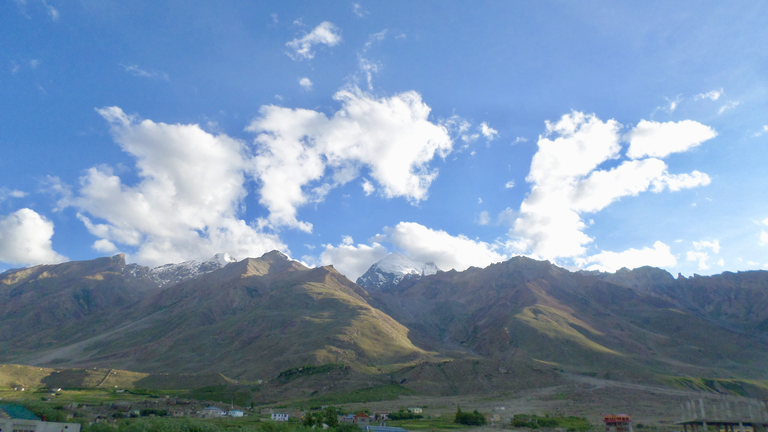

In the evening I visit a dhaba and have another thali. I’m greeted by three Israelis who are traveling north, as well as an American trekker and his Chinese wife DinDin -- they're crossing the Zanskar Range this week. The Israelis are good folks, young and free-spirited. One of them’s name is David, he’s a biker and an officer in the Israeli military. Rachel is a beautiful lady on her second trip to India, and at the time of this writing the two of them were together. The third in their party is on her way to Kargil, a town to the north. The American fellow is fascinating, if not a bit verbose. He remembers facts like an encyclopedia, and for that he has a knack for filling conversations with punchy information. I find that he’s an English teacher based in Beijing, he says the job can be hell but easy. He also says he can get me a position with no trouble, and that with all the perks I’d be paid quite well. I was stupid to not exchange contacts with him after the whole night. But I do remember what he told me about China, about the incredible district of Yunan and the Tibetan Plateau, and how a traveler can get a terrific buffet of Chinese culture by going from there into Mongolia in sort of a U shape.
As the dhaba is closing we see a convoy of shouting villagers and vehicles blasting music. The Israelis tell me there’s a wedding going on, so everyone decides to join the festivities.
The wedding is huge. A landed Ladakhi family is celebrating the marriage of two cousins within the bloodline, I’m told that this is according to local Buddhist tradition. A high lama (guru) is there to bless the wedding with an ancient ritual. I see a great pile of gifts outside of the family home. Tents cover most of the yard, but it is dark outside and not far from the celebration was a shrouded village and the desert. I find people working in a makeshift outdoor kitchen, busily preparing tons of curries, rice, tea and rotis (a local bread). We walk into the main tent, where more than a hundred people, many very old and wearing traditional garb, gather to break bread. In the middle of everyone is a mountain of thick, head-sized rotis. These were thick and made from local barley.
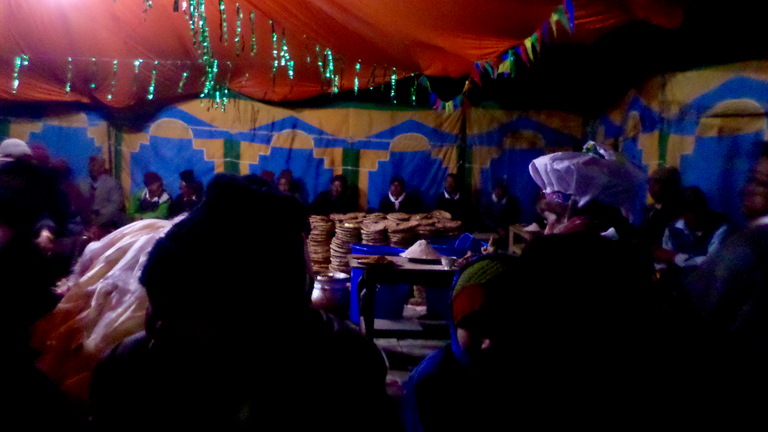
A women passes around arrack (a distilled alcoholic drink) that could have only been brewed by a master. They call it the “beer of the mountains”, and I’ll never taste arrack as good as that again. We all sit there for a couple of hours, becoming tipsy on all the rounds of local brew. Rachel is the only Isreali that came with us, the others went to sleep. She takes off with the brother of the bride — he's a peculiar guy, weirdly high swagger. “I’m not interested in girls,” he says. “Girls are interested in me.”
He's got impressive English.
The four of us eventually gather again and decide to go off for a joint. DinDin stays behind at the tent. The Ladakhi guy leads us all to a sand dune in the black of the desert a ways from the congregation. The American (I’ll just call him America) rolls us a joint packed with real Malana charas (Malana is known for some of the best hashish in India). After just a few puffs, we’re all absolutely stoned. the Ladakhi fellow boasts that his family is very powerful in the area and in all respects, he’s a princeling. America keeps puffing on the joint, we can all tell the arrack is catching up with him. He’s more talkative, not “shanty shanty” as we call it in India. I enjoy his anecdotes, but he’s driving himself into a disturbing place. Then things escalate really fast.
“You guys want to hear a scary story?”
America then proceeds to tell us, in painful detail, a story of how “a bunch of Nepali guys were coming to gang rape DinDin.” He gets really worked up, discernibly lying to us and then cornering me with inappropriate questions considering the setting. He's scaring Rachel, who suddenly realizes she is with three drunken strangers in the middle of a sand dune in the boonies. I know people like America, and when people like that get drunk and angry, interesting things happen. Since he’s cornered me, it was up to me to derail the conversation and give the others a good reason to dip out. I steer the conversation to the subject of his wife’s safety, and finally he storms off to find her. I find Rachel isn’t comfortable with the princeling, either. I say he is probably after sex, if that isn’t obvious. She walks with me back to the Ibex, we’re both getting tipsier. She’s pretty spooked about the whole thing, I’m glad to end the night on a good note with getting us back safely. “I’m so used to walking” I say to her while staring at my boots. The night was so intense, and I'm intoxicated. It's one of those moments when it all simply hits me at once — being in India, being on this trek, it’s changed the way that I see everything -- it's transformative.
Rachel and I jump the fence to get into the Ibex, then quickly split up. I go to sleep in a hurricane of thought.
--
Thanks for reading, I'll continue to transcribe my journal and upload photos. We've still got a long way to go with this old Canon camera (I do eventually get a better camera). I hope you guys enjoyed that I kept it real and didn't leave much out. I've honestly sterilized some of my stories and will not do that in the future.